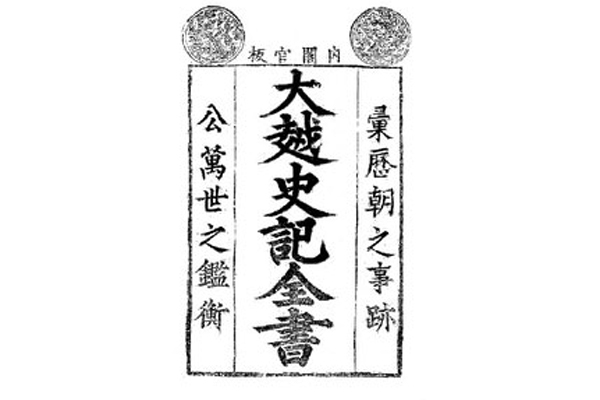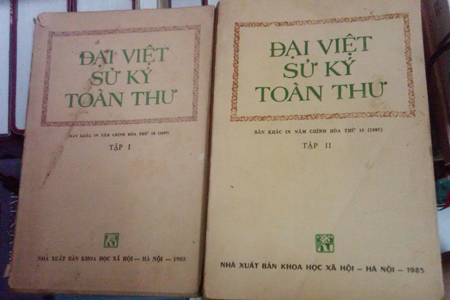They have been there, on my desk, for several days now in November 1994 – the four hardback volumes (20×27.5cm, over 2,000 pages) of Dai Viet Su Ky Toan Thu (Complete History of the Great Viet) – an invaluable gift from Phan Huy Le, editor of the latest edition, 1993.
And each time I looked at that monumental work I was tempted, ridiculously enough, to parody this statement made by Bonaparte when he was addressing his troops at the foot of a pyramid in Egypt: “From the summit of these Annals thirty centuries are beckoning to you.”
The book, the oldest and most complete historiography that has found its way to reach us, tells of the existence of Vietnam from its legend-shrouded protohistory under the reign of the Hung Kings in the Bronze Age, the first millennium before Jesus Christ, to 1675.

To compile this huge book historians, generation after generation, had to work continuously for more than four hundred years.
The groundwork was laid by Le Van Huu (1230-1322) when he completed in 1272 his Dai Viet Su Ky (History of the Great Viet), which, unfortunately, has been lost.
The job was later picked up by Ngo Si Lien (15th century) who basing himself on Le Van Huu’s work, started Dai Viet Su Ky Toan Thu (Complete History of the Great Viet) which subsequently was expanded by contributions from other historians of different periods.
You can book tour to Vietnam (or Laos or Cambodia) with us at: Promotion Packages,
Written in Han (Classical Chinese – which was used for learned works, like Latin in the European Middle Ages) Dai Viet Su Ky Toan Thu was first translated into Vietnamese (the romanised script) in 1967 in Hanoi and 1974 in Saigon. Translation was based on a 19th century Han edition from the archives of Quoc Tu Giam (College of Children of the Nation) in Hue.
Meanwhile, unbeknownst to Vietnam, a copy of the original version of 1697 (Reign of Chinh Hoa) was miraculously preserved in Paris, first at the home of the eminent French orientalist Paul Demieville, and then at the “Bibliotheque de la Societe Asiatique.”
Thus one of the most precious cultural legacies of Vietnam was saved from oblivion to bless us with a new Vietnamese version this year.
Dai Viet Su Ky Toan Thu constitutes the culmination of knowledge of Vietnam’s history up to the end of the 17th century and is the main source of reference for later works. For researchers it is an indispensable indigenous source of Vietnamese history.

